The celebrity chef who beat the US military at getting food aid into Gaza
World Central Kitchen head José Andrés, a twice Michelin-starred chef, is mourning the deaths of the aid group’s workers, including Australian Zomi Frankcom.
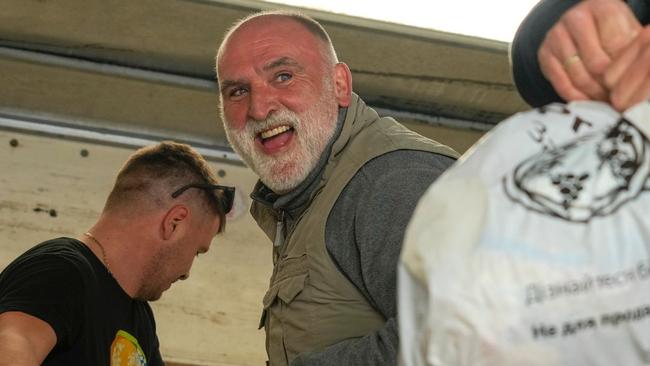
When President Biden declared in early March that the U.S. military would build a pier on the coast of Gaza to deliver humanitarian aid by sea, Spanish-American celebrity chef José Andrés was already two steps ahead of the world’s mightiest fighting force.
On Monday, some of his World Central Kitchen relief workers who have been critical to feeding Gaza residents were killed in an apparent Israeli airstrike, which the Israeli military termed a tragedy and said it was investigating.
Today @WCKitchen lost several of our sisters and brothers in an IDF air strike in Gaza. I am heartbroken and grieving for their families and friends and our whole WCK family. These are people…angels…I served alongside in Ukraine, Gaza, Turkey, Morocco, Bahamas, Indonesia. They… https://t.co/rM3xbsiQ1Q
— Chef José Andrés 🕊ï¸ðŸ¥˜ðŸ³ (@chefjoseandres) April 1, 2024
Earlier this year, José Andrés had commandeered a tugboat to bring 200 tons of food on a barge from Larnaca, a port city in Cyprus, to Gaza’s shores for use in kitchens run by his disaster-relief group, World Central Kitchen. He had also flown to Tel Aviv to charm Israeli officials into supporting his initiative.
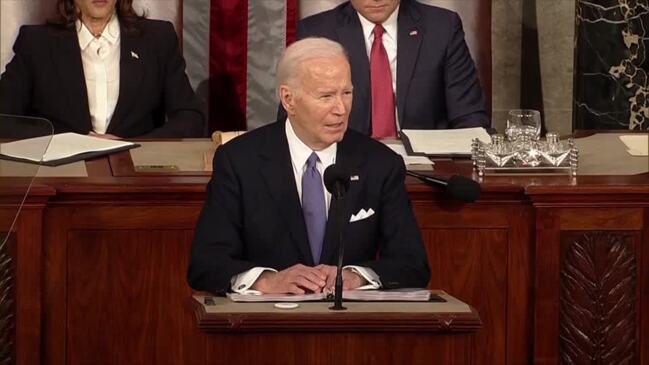
When the tugboat arrived in Cyprus in mid-February, “everything went from impossible to maybe,” said Andrés. Making such leaps is the signature of the chef’s philanthropy.
To reach shore after Gaza’s port was bombed, local contractors cobbled together a jetty from the rubble of destroyed buildings. The vessels began the three-day journey across the Mediterranean before the jetty was complete; if it wasn’t ready in time, the volunteer crew would have to improvise.
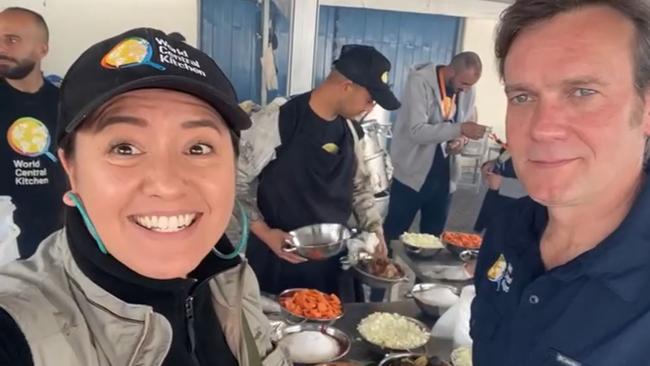
In a war that poses unprecedented challenges for humanitarian organisations used to operating in the world’s toughest environments, Andrés’s tiny but nimble charity has repeatedly set the pace. The group is punching above its weight in Gaza, where more than one million people are estimated to be starving as a result of Israel’s war against Hamas. While the United Nations provides nearly 80% of humanitarian aid to the besieged enclave, World Central Kitchen accounts for more than half of non-U. N. deliveries, mostly food, according to Cogat, the Israeli military body co-ordinating aid there.
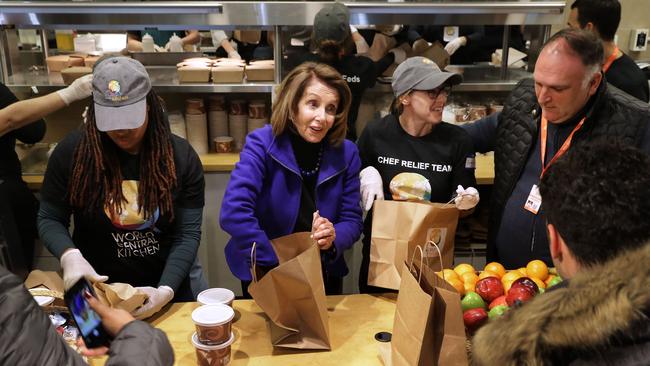
Andrés, a twice Michelin-starred chef who recently promoted his latest cookbook on “The Tonight Show Starring Jimmy Fallon,” started the Washington-based non-profit in response to the 2010 Haiti earthquake. Its field kitchens provide free, hot meals during crises, including recent earthquakes in Turkey, Syria and Morocco and floods in Afghanistan and Pakistan. Andrés first operated in a war zone in Ukraine, building a network of restaurant partners to prepare meals for displaced families.
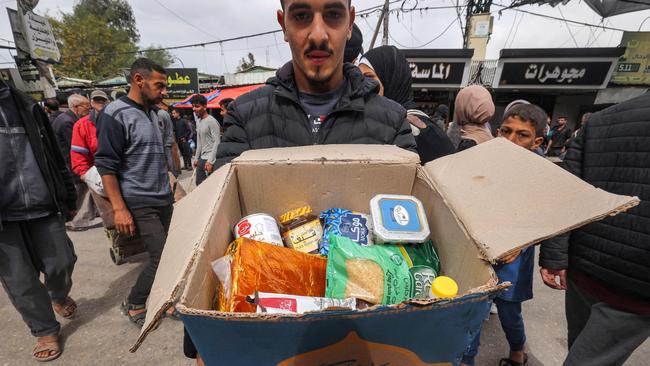
In Gaza, home to about 2.2 million people, World Central Kitchen has delivered by its own count more than 43 million meals since October. Its main field kitchen, in the southern city of Rafah, provides 50,000 hot meals and meal kits to Palestinians daily and has its own bakery. The organisation runs several other community kitchens across the Gaza Strip and offers meals to staff and patients in hospitals that are still functioning. It has delivered about a third as much food as the U.N.’s World Food Program, according to Cogat.
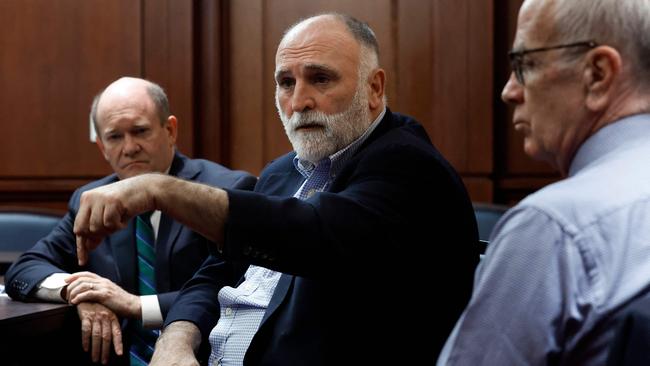
Andrés, who volunteers his time to World Central Kitchen while continuing to open new restaurants, says his main goal in launching the maritime corridor was to show that the situation in Gaza was so bad that it required such drastic measures.
“Any option was better than nothing,” he said in an interview. “We can complain all day or we can find alternative methods. The ultimate goal for us is to make sure that we are able to feed as many people as we can and minimise the famine.” The gregarious 54-year-old’s connections include world leaders and movie stars whom he taps in his mission to respond to emergencies around the world. His radical thinking extends to a vision where militaries are repurposed to feed the hungry.
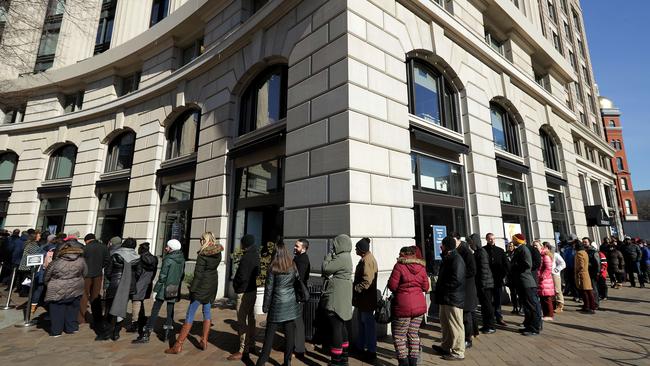
World Central Kitchen’s willingness to ignore conventional wisdom also helped it navigate mountains of logistical and bureaucratic obstacles in Gaza. When cooking gas ran out after the war began, it produced wood-pellet stoves and obtained pellets from Egypt. To get around Israeli bans on metal mixing spoons, it ordered wooden ones and fashioned insulating sleeves to keep cooking pots warm when away from the fire.
When poor security and Israeli checkpoints prevented the U.N. and other humanitarian groups from delivering ready-made meals to northern Gaza, World Central Kitchen joined with Jordan in February to airdrop food — weeks before Biden directed the U.S. military to do the same.
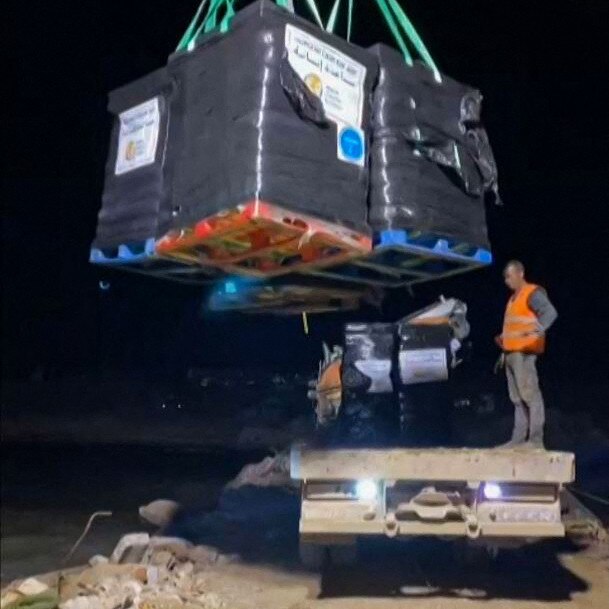
Then in mid-March, the group’s tugboat and barge reached Gaza’s coast. Onshore crews, working day and night under the supervision of Israeli forces, were able to prepare the landing area in northern Gaza. Once unloaded, the aid group’s first shipment by sea to Gaza was a success — and had delivered less than 20 trucks’ worth of food.
The mission was triggered by the deteriorating situation in the north, which was cut off from almost all aid. Andrés hoped to use the tugboat mission to get food to civilians sheltering at Gaza City hospitals, while trying to deliver more food by truck, which is more efficient.
In early January, the chef texted his friend Oscar Camps, the Catalan activist who runs the migrant-aid non-profit Open Arms, about sending food to Gaza by sea. As the men secured permissions to make the first voyage happen, Biden revealed the U.S. plan and the European Commission said it was supporting a maritime corridor, putting the spotlight on the World Central Kitchen voyage that went ahead the following week.
WCK’s Zomi & Chef Oli are in our new Deir al-Balah kitchen where our team is cooking thousands of portions of rice with beef & vegetable stew today. We’re expanding this space so we can increase the amount of meals we produce for families in central Gaza daily. #ChefsForThePeoplepic.twitter.com/dSO7GrJSOv
— World Central Kitchen (@WCKitchen) March 25, 2024
“We did it on our own, not in co-ordination with anyone from the beginning,” said Andrés. He secured bureaucratic clearances from Cyprus and Israel, which inspected the goods before the vessels sailed, and financial backing from the United Arab Emirates.
On Saturday, World Central Kitchen’s second mission set sail from Cyprus after waiting several weeks for better weather to cross the sea. The original barge and tug are joined by a larger cargo ship and a support vessel that altogether are carrying enough rice, pasta, flour, dates and canned food to prepare more than one million meals.
This time, the larger ship equipped with a forklift and crane will wait in international waters while the barge ferries food back and forth to the jetty, as World Central Kitchen aims to increase the speed and volume of maritime deliveries, said Juan Camilo Jimenez, who helped organise both shipments.
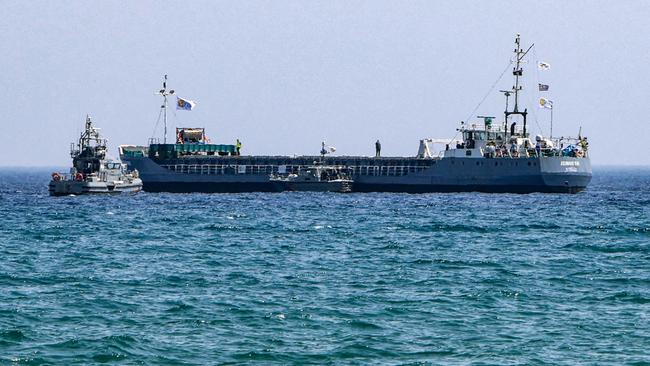
“Our modus operandi is: be ready and do everything you can control so when we get the opportunity, we [can] start the journey,” said Jimenez.
Additional voyages will likely be completed before significant construction even gets under way on the U.S. pier, which U.S. defence officials say will take two months to build because the U.S. military must transport equipment and forces into the region, including six vessels and 1,100 military personnel.
The Pentagon’s plan calls for aid to be unloaded from ships onto a floating pier, then transported by U.S. military support vessels to a two-lane causeway that would be attached to the shore. Biden has said no U.S. troops will be on the ground and the Israeli military will provide security. The Israelis have already done the same for the World Central Kitchen sea mission, an unusual level of co-ordination for humanitarian groups in Gaza.
Unlike non-government organisations that have criticised Israel’s conduct of the war and restrictions on aid, Andrés and his team are often careful about what they say publicly. They delivered meals to Israelis displaced from border areas as a result of the Hamas-led Oct. 7 attacks, which likely boosted their credibility with Israeli authorities.
Our WCK boat ready to sail to Gaza loaded with food reminds me why I started @WCKitchen—to feed people after crises no matter what. This is a time for action not for hollow promises. The world needs to join us to provide the humanitarian aid that Palestinians so desperately need… pic.twitter.com/m3d5RAfybn
— Chef José Andrés 🕊ï¸ðŸ¥˜ðŸ³ (@chefjoseandres) March 11, 2024
But in March, as the desperation in Gaza grew, Andrés tweeted that Biden should demand Israeli Prime Minister Benjamin Netanyahu “stop killing children, targeting humanitarian volunteers and press!” He criticised plans for the U.S. military to deliver aid by sea and said the White House should instead push for more trucks from the U.N. and other aid groups to get through Israeli checkpoints.
Before Oct. 7, most goods entered Gaza through Israel. After the Hamas attack, the Israeli government decided to stop that. Netanyahu remains under pressure from Israel’s far right and protesters to stop any aid from entering Gaza.
I respect you @POTUS and think highly of you…but the “better tomorrow†you are talking about starts by demanding @netanyahu to stop killing children, targeting humanitarian volunteers and press! To open more routes by road into Gaza to feed everyone. To call for a cease fire,… https://t.co/zzk0cuB7QS
— Chef José Andrés 🕊ï¸ðŸ¥˜ðŸ³ (@chefjoseandres) March 18, 2024
Israel has said it is doing everything it can to ensure aid reaches Gaza, including the limited opening of a ground crossing directly to the north.
Some critics of the maritime corridor say it relieves pressure on Israel to end its restrictions on aid getting to the north by truck. Andrés has called for a ceasefire and said that while he won’t hesitate to use every possible avenue to get aid into Gaza, the crisis ultimately can’t be addressed without opening more ground crossings, particularly in the north, which is in line with the consensus in the international aid community.
World Central Kitchen is looking to scale up the maritime corridor with bigger boats and more sailings, as Israel’s military has blocked a far bigger organisation — the U.N. Relief and Works Agency — from delivering food to the north.
Some humanitarian organisations fear that aid groups are being used by Israel to sideline UNRWA, which other U.N. agencies and independent charities, including World Central Kitchen, rely on for their own aid deliveries. Andrés said his charity tries to stay above politics.
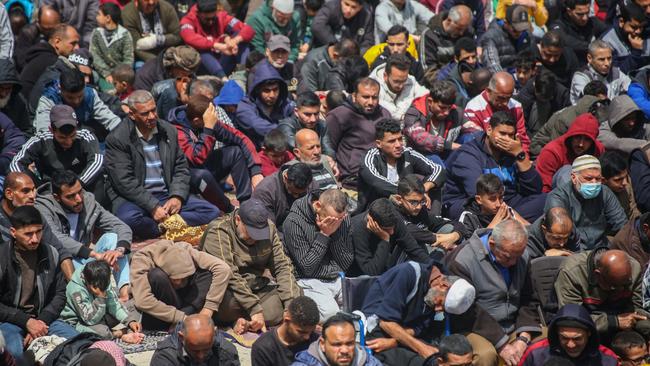
Israel, which controls the flow of aid into the Gaza Strip on what it calls security grounds, has accused at least a dozen UNRWA employees of taking part in the Oct. 7 attacks. It is pushing for the agency to be gradually phased out of Gaza and lobbying allies to replace it with other humanitarian groups, which lack the capacity to do so.
UNRWA fired the staffers allegedly linked to the attacks, and said Israel hasn’t provided evidence that the involvement in militant groups goes beyond a few individuals. The U.N. has launched two investigations into the allegations, which U.S. intelligence agencies have assessed were credible but couldn’t be independently confirmed.
Israel’s military said it blocked a request by UNRWA to go to north Gaza in late March, saying the agency hadn’t requested to go there for the previous six weeks. UNRWA says that it was denied access to the north repeatedly over the past six weeks, including four times for food distribution.
“Israel is constantly exerting significant efforts to find a solution that will ease the flow of aid into the Gaza Strip and especially into the north,” said Cogat, the Israeli military body responsible for facilitating aid.
Aid groups say Israeli restrictions are the biggest obstacle to getting aid to people in Gaza, alongside the lack of security and limited capacity to make deliveries.
The International Court of Justice ordered Israel on Thursday to ensure the unhindered provision of basic services and humanitarian assistance to Gaza civilians “by increasing the capacity and number of land crossing points and maintaining them open for as long as necessary.” During a recent trip to Gaza, Sam Bloch, World Central Kitchen’s director of emergency response, said he saw how supply-chain challenges and a lack of communications, water and traditional fuel complicate aid delivery. Continued bombing and crippled infrastructure make some roads impassable.
“The farther north you go, the more desperate people have become to feed their families,” he said. “In a way, we are just getting started.”
— Margherita Stancati, Nancy A. Youssef and Ben C. Solomon contributed to this article.
The Wall Street Journal

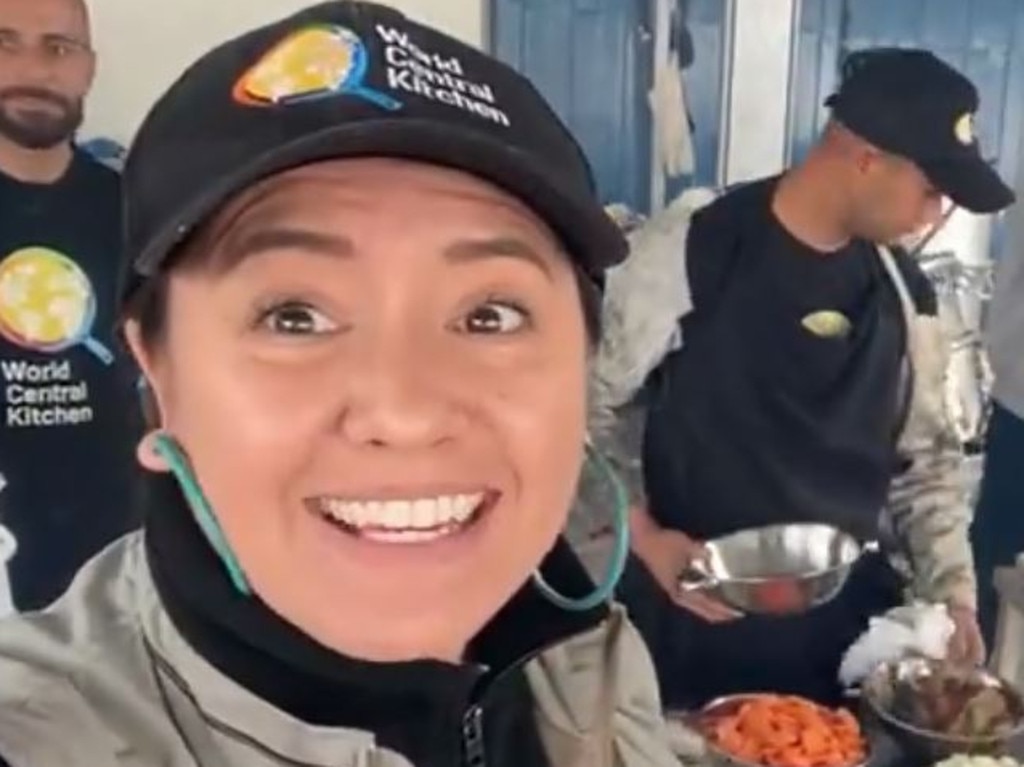
To join the conversation, please log in. Don't have an account? Register
Join the conversation, you are commenting as Logout